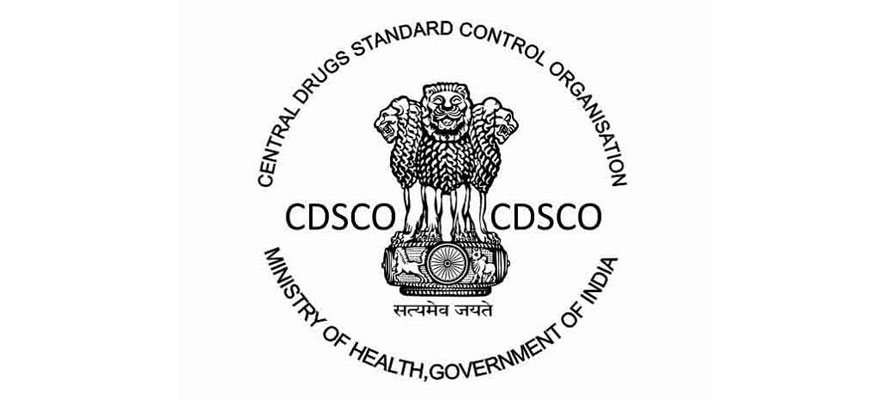Introduction:
India’s drug regulatory authority, the Central Drugs Standard Control Organization (CDSCO), has been at the forefront of ensuring the safety, efficacy, and quality of medicines, medical devices, and cosmetics available in the country. As the pharmaceutical industry continues to expand, CDSCO regularly updates its regulations to adapt to new challenges, enhance public health, and meet global standards. This blog explores recent regulatory updates from CDSCO that are significant for stakeholders in the healthcare and pharmaceutical sectors.
1. New Medical Device Rules 2023: Strengthening Compliance and Safety:
In a bid to align India’s medical device regulations with global standards, CDSCO implemented new medical device rules in 2023. This regulatory update includes stricter provisions on classification, manufacturing, and post-market surveillance of medical devices.
- Risk-Based Classification: Medical devices are now categorized into four classes (A, B, C, D) based on their risk profile. Class A represents low-risk devices like surgical dressings, while Class D includes high-risk devices like pacemakers. The licensing requirements and scrutiny levels are tiered according to these classifications.
- Quality Management System (QMS): Manufacturers of medical devices are required to implement a Quality Management System that complies with ISO 13485 standards, enhancing product safety and traceability.
- Post-Market Surveillance: The rules also emphasize the need for robust post-market surveillance systems, mandating manufacturers and importers to report adverse events, device failures, and corrective actions promptly.
2. Introduction of Digital Platforms for Regulatory Approvals:
In an effort to streamline drug approvals and licensing, CDSCO has been enhancing its digital infrastructure. The introduction of Sugam, an online portal for drug manufacturers and importers, has been a key step towards improving transparency and reducing the time for regulatory clearances.
- Simplified Application Process: The Sugam portal allows companies to submit applications for drug licenses, clinical trials, and product registrations online. This has reduced paperwork and made it easier for businesses to track the status of their applications.
- E-Governance in Drug Regulation: CDSCO’s move towards e-governance, including online submissions of adverse drug reaction (ADR) reports and pharmacovigilance data, has facilitated better collaboration between regulatory bodies and the pharmaceutical industry.
3. Revised Good Manufacturing Practices (GMP):
One of the major regulatory updates in 2023 was the revision of Good Manufacturing Practices (GMP) for pharmaceuticals. The new guidelines are aimed at harmonizing India’s manufacturing standards with World Health Organization (WHO) norms and ensuring consistency in the quality of pharmaceutical products.
- Stricter Audits and Inspections: CDSCO has increased the frequency of inspections of pharmaceutical manufacturing facilities, focusing on compliance with the revised GMP guidelines. This helps ensure that products meet both national and international standards.
- Data Integrity and Documentation: The updated GMP emphasizes data integrity, ensuring that manufacturers maintain accurate records of their processes. Electronic records and signatures are being encouraged to enhance accountability.
4. Clinical Trials and Ethics Committee Updates:
India’s clinical trials landscape has seen significant changes under the CDSCO’s updated guidelines. These regulations ensure that clinical trials are conducted ethically and with the utmost focus on participant safety.
- Simplified Approval Process: The New Drugs and Clinical Trials Rules, 2019, further amended in 2023, streamline the approval process for clinical trials, particularly for orphan drugs, new drugs, and biologics. This encourages innovation and faster development of new therapies.
- Strengthened Role of Ethics Committees: Ethics Committees play a crucial role in overseeing clinical trials. The regulatory update mandates a more rigorous framework for the registration and functioning of these committees, with regular inspections to ensure adherence to ethical standards.
5. Focus on Pharmacovigilance and Adverse Event Reporting:
The safety of patients remains a top priority for CDSCO. To improve pharmacovigilance—the process of monitoring the safety of medicines after they have been approved for use—CDSCO has introduced stricter adverse event reporting guidelines.
- Mandatory Adverse Event Reporting: Pharmaceutical companies, hospitals, and healthcare providers must now report adverse events related to drugs, vaccines, and medical devices more rigorously. This helps in timely identification of risks and ensures corrective actions are taken to prevent harm to patients.
- Pharmacovigilance Program of India (PvPI): The CDSCO continues to work closely with PvPI to ensure continuous monitoring of drug safety. The data collected is analyzed to detect safety signals and take regulatory actions when necessary.
6. Ban on Select Fixed-Dose Combinations (FDCs):
As part of its efforts to curb irrational drug combinations that may pose risks to patients, CDSCO has banned several Fixed-Dose Combinations (FDCs). The recent ban in 2023 is part of an ongoing review of the safety and efficacy of FDCs available in the Indian market.
- Clinical Justification Required: Manufacturers of FDCs are now required to provide clinical evidence supporting the safety and efficacy of their products. If the combination does not meet the regulatory standards, it faces the risk of being prohibited from sale.
Conclusion:
The latest regulatory updates from CDSCO reflect a continued commitment to safeguarding public health while fostering innovation in the pharmaceutical and medical device sectors. By enhancing compliance with global standards, streamlining approvals, and strengthening post-market surveillance, CDSCO is ensuring that India’s healthcare products are both safe and of the highest quality.
For pharmaceutical companies, manufacturers, and healthcare providers, staying updated with these changes is crucial to ensure regulatory compliance and to maintain consumer trust in their products. These reforms not only promise to benefit Indian patients but also boost India’s standing as a global leader in pharmaceuticals and medical device manufacturing.

